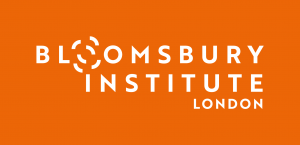Blinn College is a community college located in Brenham, Texas. It is a mid-size institution with additional campuses serving the Bryan, Schulenburg, and Sealy communities. They also partner with Texas A&M as a member of the RELLIS Academic Alliance to expand their educational opportunities to students. Blinn College has been using Turnitin for 17 years.
Remote teaching poses risk to student engagementWhen Blinn was forced to transition to remote teaching in 2020, they needed a way to help authenticate student work, help students collaborate remotely, and ensure they received robust feedback. Going remote posed its challenges when it came to having opportunities to engage with students to learn what they were thinking and how they actively engaged with their learning in remote settings.
Staying ahead of trends in academic misconduct is a constant process of understanding the educational landscape and how your students participate in it. For Blinn College, a crucial part of this meant keeping a pulse of student perceptions and behaviors in the academic setting.
English Professor, Audrey Wick, took it upon herself to research what that meant for her students at Blinn, and regularly published articles that covered new and emerging trends, and proactive approaches to prevent students from straying down those paths. One trend they found was that some students were using text spinners to complete their work. Identifying those instances was crucial for their leadership to take measures to ensure academic integrity at Blinn.
Creating connection in a virtual worldBlinn devoted their approach to remote teaching to ensure student, faculty, and staff safety while also creating thoughtful ways to stay engaged. Their goal was to assure everyone that they were going to be taken care of during the pandemic. This meant providing a variety of services to accommodate new modalities like flex online, remote, and asynchronous structures.
Instructors across disciplines used Turnitin to authenticate original student work ensuring that student submissions were measured against a comprehensive database of existing work and online sources, and were alerted if further investigation was needed. It also helped them to keep students connected with their instructors and engaged in coursework. Features like PeerMark helped students to collaborate remotely during peer review activities. They also found opportunities to stay connected through providing robust feedback with digital grading, comments, and rubric use. All of these touchpoints created a remote learning environment where students benefited because their writing could be given the attention it deserved.
“Class-to-class and semester-to-semester, instructors can individually track the number of unoriginal submissions, but also use the metadata for other purposes, like whether or not students are reading feedback and whether or not they are planning their time by not waiting until the 11th hour to submit digitally.”—Audrey Wick, English Professor at Blinn College
Sustaining strong student relationshipsBlinn celebrated success with their strategy and returned to in-person classes in Fall 2021. All the while, students reported that they felt safe and supported. Professor Wick continues to learn about new trends in academic misconduct, and raise awareness for her colleagues and students alike. She continues to publish articles on topics like contract cheating in addition to hosting webinars . Her hopes are that by creating learning opportunities out of these trends, more instructors can be proactive about how they understand and support their students.
“I think the college as a whole should be recognized for its championing of student writing in this way, while upholding standards and finding ways to adjust to changing needs.”—Audrey Wick, English Professor at Blinn College
![[copy_of_blinn___audrey_wick_headshot_1:MEDIASTORE_LEAF]@8fc47a7](https://www.turnitin.com/assets/images/resources/image-block-images/copy-of-blinn-audrey-wick-headshot-1.jpg)
Education offers hope. And I think we're in a world where we need that maybe now more than ever. I'm really proud to be an educator because in the classroom I feel like I can be a champion of hope for my students no matter where they come from, no matter what goals they have for the future. I'm going to help get them there.



